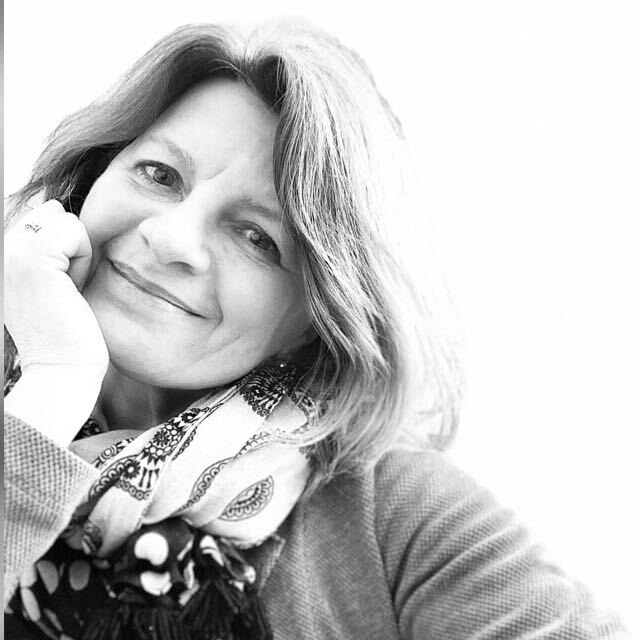Libraries as enablers of scientific research, National Science Library, Tbilisi, 27-28 April 2023
Nino Pavliashvili, Director of the National Science Library and Irina Matthews, EaPConnect Project Manager from GÉANT, whose determination and close collaboration made this event possible, kicked off the workshop.
Irina commented: “The EaPConnect project aims to bring together education and research communities of the EaP region and EU members at the European and global level. This goal is achieved by implementing the computer networks and connectivity for the benefit of Research & Education communities to strengthen their position as equal partners in national and international collaborations. Technology has changed the way we learn, work and live. This event aims to acknowledge the evolution of the role of libraries from physical repositories to online platforms enabling and scaling up knowledge exchange. Technological advancement multiplied by the increasing size of the professional human networks allows this evolution to continue”.
Nino Okribelashvili, Vice Rector of Ivane Javakhishvili Tbilisi State University gave a brief Georgian perspective in the context of European research: ”Students are increasingly using artificial intelligence connected with libraries and chatbots are doing a great job in gathering scientific literature on specific topics. Libraries give students direction and ideas. Libraries are not just enablers. We hope that future generations will be able to benefit from the outcomes of this workshop.’
Guest of honour, Professor Erekle Astakhishvili, General Director of the Shota Rustaveli National Science Foundation of Georgia, in his warm welcome address talked about the recently announced World Bank grant for Georgia. Touched upon the importance of the ability to measure the effectiveness of science and closed his brief talk highlighting that open science will support the promotion and inclusion of Georgian scientists in a wider international context.
The event chair, Nino Parsadanishvili, Coordinator of the Horizon Europe grant office at Ivane Javakhishvili Tbilisi State University shared her inspiring thoughts: “We need to act local and think global! Boundaries between scientists disappear every day. The main challenge of Open Science is to bring together stakeholders from different arenas. Open Science will not be lost in translation if we bring it closer to our mindsets, we should not be afraid of cooperation, but be encouraged by our thirst for knowledge”.
Representatives from the Georgian Horizon Europe office touched on the three Horizon Europe’s main pillars: excellent science, global challenges and European industrial competitiveness, and innovative Europe. They invited participants to join forces, collaborate and take advantage of the forthcoming opportunities offered by new calls for libraries in the context of Open Science.
Sarah Jones, EOSC Engagement Manager, GÉANT, closed her very engaging talk:
“Libraries are becoming more active in the area of Open Science: new support roles such as data stewards, data scientists, research software engineers are being created.” And on a more general reflection on EOSC, Sarah added: “But how do we make EOSC work? We need a basic framework to connect all the different elements, such as tools, workflows and storage. Standards are fundamental when trying to connect many different layers, and interoperability is the key as some of the data that researchers need may come from different worlds that don’t connect. We must focus on the context in order to provide more meaningful support to researchers across the board”.
Milica Ševkušić, from the EIFL in Belgrade, Serbia, reflected on the evolution of the role of librarians.
“Librarians have been trying to reinvent themselves becoming jack of all trades. Although libraries of the digital age are starting to require new roles, not all librarians can acquire all the new skills needed – EOSC-related skills for instance have a very strong technical component. We recognise that new job profiles need to be introduced, but we are faced with the reality that libraries are understaffed, have rigid career profiles, librarians are underpaid and there is a general lack of institutional support for career development. Not to mention the challenges associated in gaining these skills such as a limited training offer in native language, self-training risks and the increasing demand for technical knowledge.”
Shushanik Sargsyan, IIAP NAS RA talked about Open Science activities in Armenia and in particular of the Armenian Science Citation Index (ASCI) in line with a trend among developing countries to create their own index by combining indexes from other countries with the objective to create a more widely open and accessible regional index hence enabling the internationalisation of national science.
Oleksandra Rodyhina, Igor Sikorsky Kyiv Polytechnic Institute’s library, Ukraine, talked about the development and implementation of an Open Science policy at her university. To find out more, read Oleksandra’s interview on the EaPConnect website.
Ina Nicuta, The Scientific Library, Academy of Economic Studies and Viorica Lupu from the Scientific Library, Technical University of Moldova talked about the role of academic libraries in Moldova’s open science landscape: in particular with reference to the National Biometric Tool, the Current Research Information System (CRIS) and selected cases studies of research open data.
Richard Dennis from the University of Copenhagen presented Dataverse: a FAIR-compliant solution to store open data built to support multiple types of data users and workflows, an open source platform to publish, cite and archive research data. Richard commented: “The pace of technical change is so fast that libraries can’t keep up. Librarians need to be upskilled, but this can only be achieved via institutional support and cannot be left to individuals”.
The audience’s active and enthusiastic participation and the dynamic Q&A sessions were a great feature of day one and set the scene for day two.
What happened on day two? Read our story to find out.


